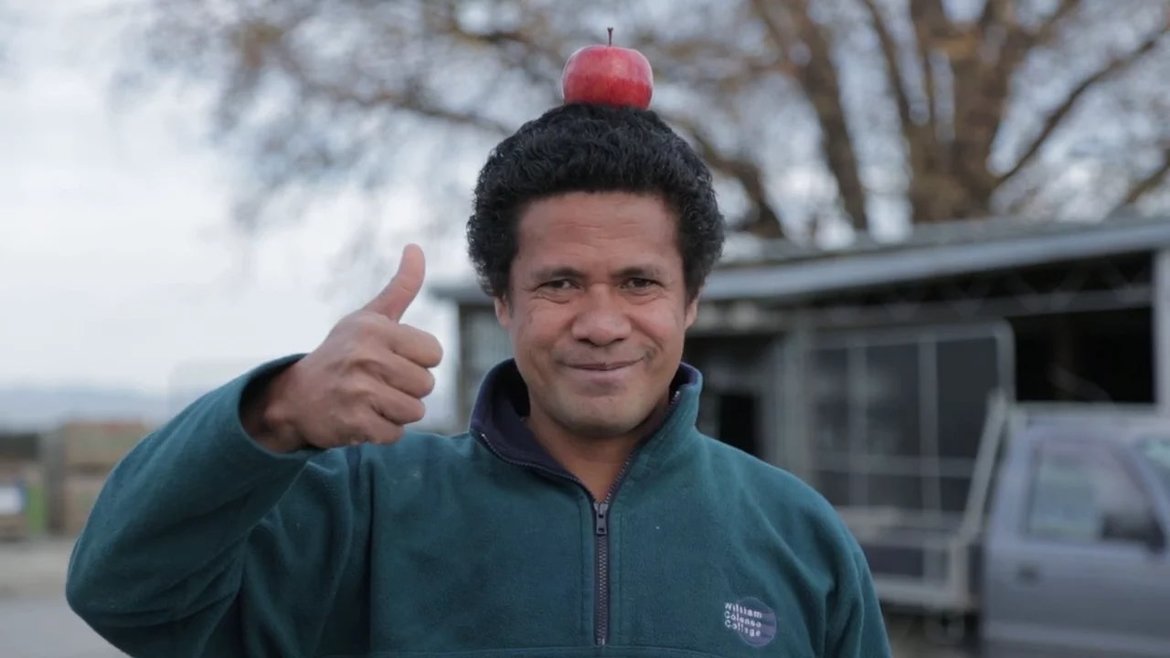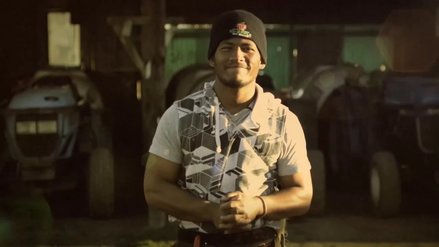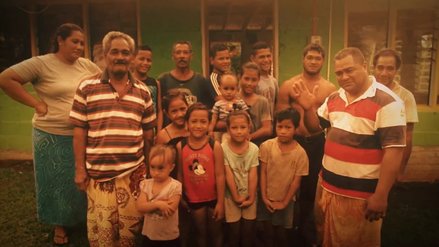A Samoan community received a brand new church thanks to the hard work of a group of seasonal apple pickers. Among them were Ropati Neemia, who built his family a new home and is planning to start a business with money earned picking apples.
We all need a sense of belonging and for Samoan man Ropati Neemia, that comes from his church.
His faith is of utmost importance to him and working as an apple picker gave him the opportunity to cement his commitment to his community and his church.
For the past eight years, Ropati has spent his summers in Hawkes Bay picking apples and the money he has earned has helped change the lives of not just his family, but also his community.
He was one of a group of eight men from his village to sign up to pick apples in New Zealand in 2007 and they came with a shared purpose: to raise enough money to build the community a new church.
It took them several seasons of hard work to make this happen and now the brilliant white structure is a testament to their efforts. Every Sunday the church, large enough to seat the whole village, is the centre of community life. It teems with music, colour and love as families, children and elderly come to worship.
It was built using New Zealand pine including handcrafted pews and pulpit.
Samoan culture ranks acceptance by community above self esteem, so the reputations of the men and their families were elevated in their village through their commitment to the church.
Once the church was completed, the seasonal workers were able to think about how to improve their own lives through the money they were earning.
Ropati built a new fale, a traditional Samoan house for his family - his wife, who has joined him in New Zealand to work on the apple harvest, and their seven-year-old daughter, who is looked after by family while her parents are working abroad.
Ropati says it’s hard to be away from her but being able to provide for her schooling and anything else she needs makes it all worth it.
“We are always in contact with her. I ask her is she all right, she says yeah she’s all right. She needs money for her school so I send money and she can get what she wants.”
Before he came to New Zealand, Ropati worked as a teacher, earning about $230 tala a week. His hard work picking apples, filling between five and seven bins a day in Hawkes Bay, means he’s now earning the equivalent of about $400 tala a day.
This year he plans to buy a minivan and start a taxi service around his area.
Even while away from home, religion provides a sense of belonging for the migrant workers. He lives in a house with 16 other Samoan seasonal workers.
Ropati conducts church services for the workers and is on hand to give them encouragement and help them keep in line.
This helps them stay true to their Samoan culture, he says.
“Samoan people, those born in Samoa, know the Samoan culture exactly. I talk to them and respect them and they also respect me.”
To keep the house running, the group divide up the work into different committees.
“Three of us are the committee of the food. Some are responsible for the ablution block, some are responsible for the rubbish around the area and some are responsible for cleaning and looking after the house.”
Being a bit older than most of his housemates, Ropati has become a source of guidance for the younger workers.
“I encourage them. Every night, especially on Sunday night, I give encourage them to do their work as good as they can.”
Ropati isn’t sure how much longer he will be able to come to New Zealand to work but plans to keep doing it as long as he’s fit and able. The benefits to his community, his family and himself make it too good to pass up.




